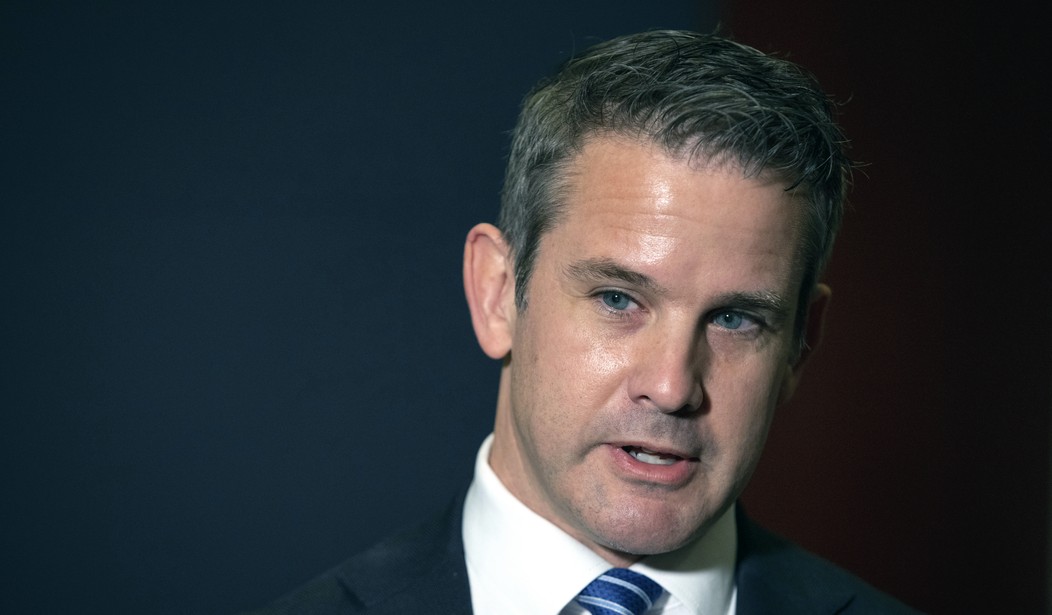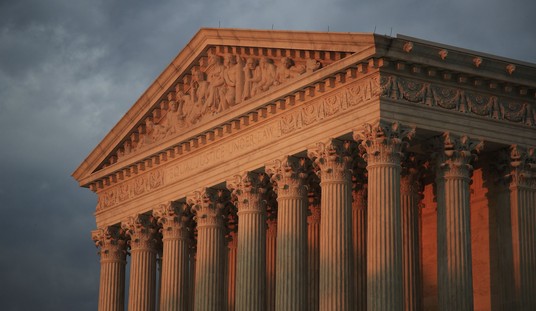The House of Representatives saw 13 Republicans and six progressive Democrats vote in opposition of the other members of their respective parties in Friday's vote on President Joe Biden's $1.2 trillion bipartisan infrastructure bill.
The bill, which was passed through the House with a 228-206 vote, will fund physical infrastructures such as roads, bridges, water pipes and broadband internet. It will now be sent to Biden’s desk for final approval. The Senate in August voted 69-30 to approve the legislation.
Republicans Reps. Adam Kinzinger (Ill.) Reps. Jeff Van Drew (N.J.), John Katko (N.Y.), Don Bacon (N.E.), Don Young (AL.), Fred Upton (MI.), Chris Smith (N.J.), Brian Fitzpatrick (PA.), Tom Reed (N.Y.), Anthony Gonzalez (OH), Andrew Garbarino (N.Y.), Nicole Malliotakis (N.Y.) and David McKinley (W.V.) all voted in favor of passing the bill.
Meanwhile, six progressive Democrats — Reps. Ilhan Omar (MN), Alexandria Ocasio-Cortez (N.Y.), Rashida Tlaib (MI), Ayanna Pressley (MA.), Cori Bush (MO) and Jamal Bowman (N.Y.) — all voted against the legislation.
This comes after 19 GOP senators voted with all 50 Democratic senators back in August to pass the proposal.
These Senate Republicans were Roy Blunt, (R-MO), Richard Burr, (R-N.C.), Shelley Moore Capito, (R-W.V.), Bill Cassidy, (R-LA), Susan Collins, (R-ME), Kevin Cramer, (R-N.D.), Mike Crapo, (R-ID), Deb Fischer, (R-NE.), Lindsey Graham, (R-S.C.), Chuck Grassley, (R-IA), John Hoeven, (R-N.D.), Mitch McConnell, (R-KY), Lisa Murkowski, (R-AK), Rob Portman, (R-OH), James E. Risch, (R-ID), Mitt Romney, (R-UT), Dan Sullivan, (R-AK), Thom Tillis, (R-N.C.) and Roger F. Wicker, (R-MS)
Recommended
On Friday, meetings among progressives and moderates House Members were tense as the two arms of the Democratic Party negotiated throughout the day, ending with a written agreement stating that progressives would vote for the infrastructure bill if moderates would vote for the $1.75 trillion social spending bill, otherwise known as the Build Back Better Act, as it is currently written by no later than the week of Nov. 15.
The agreement still requires the Congressional Budget Office to "score" the spending bill before voting on it. This is so the moderates could better analyze the legislation's financial aspects.
House Speaker Nancy Pelosi (D-CA) originally wanted to hold votes on both bills Friday but changed plans after moderates insisted on reviewing the CBO score for the Build Back Better Act prior to its vote. The scoring process can take several weeks, effectively delaying a vote on the legislation.
Progressives had previously held the infrastructure bill hostage, vowing not to vote on it until the social spending bill could be passed over concerns moderates would scale back popular provisions once the bipartisan legislation was signed into law.
At one point during negotiations Friday night between the Congressional Progressive Caucus and Democratic leadership, Caucus Chairwoman Pramila Jayapal (D-WA) threatened to kill the bill without the social spending bill.
But after hours of negotiations, the Congressional Progressive Caucus, moderate Blue Dog Democrats and Congressional Black Caucus reached a deal on a vote for the bipartisan proposal.

























Join the conversation as a VIP Member